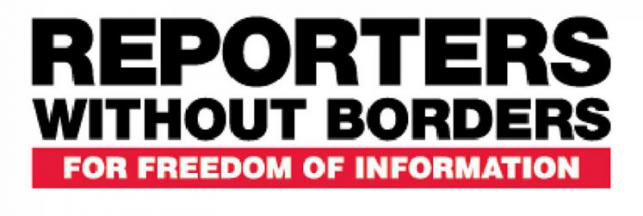
Bangladesh has ranked the lowest in terms of freedom of expression among its all its neighbours, according to World Press Freedom Index 2018 released by Reporters Sans Frontiers (RSF) recently.
It regretted growing media self-censorship in Bangladesh, saying this is the result of an endemic violence against journalists and media outlets, and “almost systematic impunity enjoyed by those responsible”.
Among 180 countries ranked, Bangladesh has been placed at 146th position in the 2018 index.
It is even nine steps below Myanmar (137th), a country which is widely criticised globally for media muzzling, of late for detaining two Reuters journalists.
In South Asia, India’s position in the index has stood at 138th, Pakistan’s at 139th, Sri Lanka’s 131st, Afghanistan’s 118th, Nepal’s 106th, and Bhutan’s 94th.
RSF, a global voice for media professionals, mentioned that in 2017, at least 25 journalists and several hundred bloggers and Facebook users were prosecuted under the Information and Communications Technology Act. It reportedly penalised online content that is regarded as “defamatory or blasphemous”.
RSF further expressed concern at the move to enact a fresh ‘Digital Security Act’ “with vaguely-worded provisions that would allow the authorities to clamp down even more on dissent”.
Also called Reporters without Borders, RSF mentioned that journalists and bloggers in Bangladesh who resist censorship or self-censorship on subjects such as constitution and religion, “risk life imprisonment or the death penalty”.
“There is real pluralism, but media self-censorship is growing as a result of the endemic violence against journalists and media outlets, and the almost systematic impunity enjoyed by those responsible,” the RSF report observed.
Norway has topped the list and North Korea is at the bottom.
The report criticised the Bangladesh government for proposing a new digital security law early this year with “vaguely-worded provisions” which, it warns, would allow the authorities concerned to clamp down even more on dissent.
Controversial ICT Act
Although the government enacted the ICT Act in 2006 in a bid to check cyber crimes, it has drawn a huge backlash after influential quarters, particularly those linked with the ruling Awami League, were found abusing Section 57 of the statute to harass journalists and rights activists.
Section 57 classes as non-bailable offences any post, image, or video in an electronic format that causes a deterioration in law and order, or which prejudices the image of the state or person, or hurts religious beliefs.
The punishment for a successful conviction ranges from seven to 14 years in prison, and a fine of up to Tk1 crore.
As of August 2017, the Dhaka Tribune found that at least 19 journalists had been sued under the act by leaders, lawmakers and activists of the ruling party, and by other influential people in the 11 years since the act became law.
There has also been a sharp rise in the number of cases being brought each year; according to prosecution sources, three cases were filed in 2013 under the ICT Act, 33 in 2014, 152 in 2015 and 233 in 2016.
The study revealed that over a span of just six months last year, a total of 391 cases were lodged under this act, of which nearly 60% were filed under Section 57.
Around 313 out of 785 people accused in the cases were arrested.
New digital security act
In response to the heavy criticism of the ICT act, the cabinet in January this year approved the draft of Digital Security Act 2018 while keeping the provision for jail terms and fines.
If the draft is passed in parliament, sections 54, 55, 56, 57 and 66 of the ICT Act will be repealed.
However, even if the government repeals the controversial provisions from the ICT Act, Section 19 of the new legislation will still enable law enforcers to conduct searches, arrest and confiscate anyone’s property without a warrant, as per the existing Section 57.
Criticism has also been directed at Section 32 of the new act. This allows 14-year jail terms and a maximum fine of Tk20 lakh for those caught secretly recording information inside government, semi-government or autonomous organization’s offices.
Reacting to the Cabinet approval, Manjurul Ahsan Bulbul, president of Bangladesh Federal Union of Journalists, said: “If any section of the [proposed] act turns out to be an impediment to the execution of the professional work of journalists, we are against it.”
